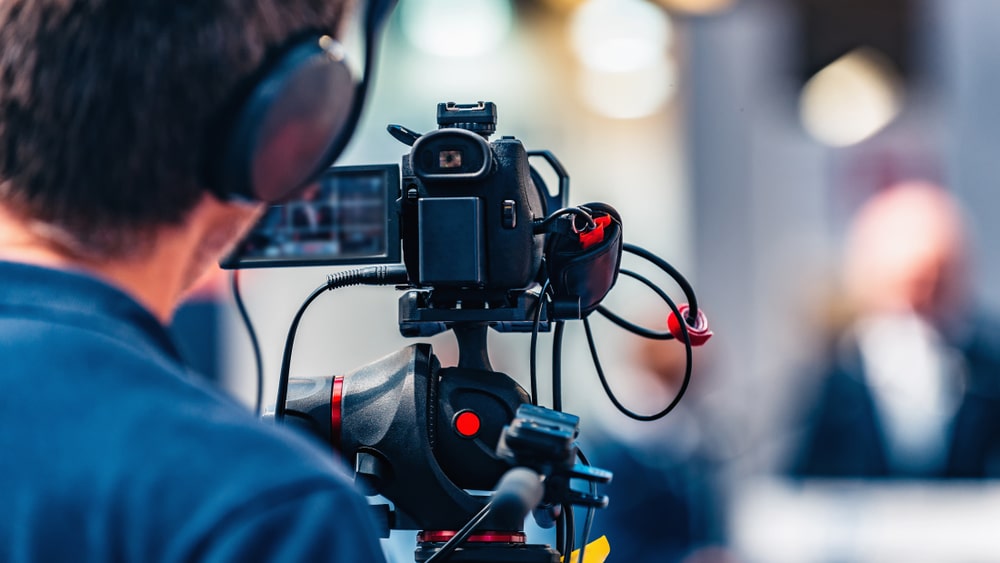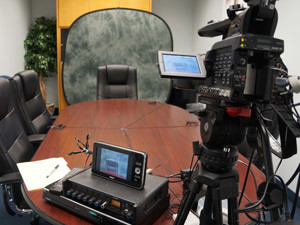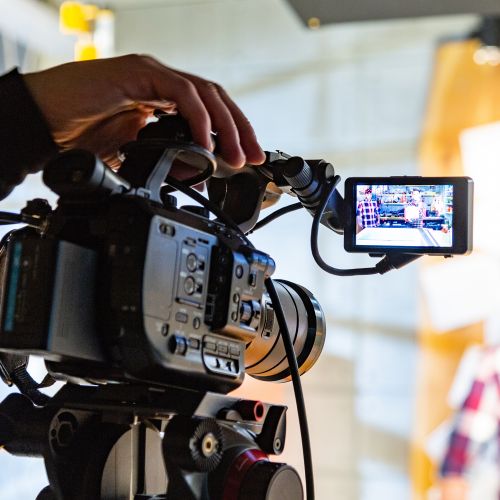The Function of Lawful Videography in Depositions and Trials
Lawful videography has actually arised as a necessary device in both depositions and tests, offering a diverse technique to recording witness statements. As legal experts progressively recognize its value, it prompts a much deeper exam of exactly how these visual records can affect juror assumptions and test outcomes.
Importance of Lawful Videography
Legal videography plays an essential function in the documentation and discussion of depositions and trials. This specialized field integrates technical skills with lawful expertise to produce a trustworthy record of proceedings that can dramatically affect case outcomes. The appearance of legal videography enhances the understanding of witness testament, allowing jurors and courts to observe not just the spoken words yet likewise the disposition, feelings, and body movement of the witnesses.

The importance of legal videography expands past the court; it also plays a vital role in maintaining proof for future recommendation, whether for appeals or more lawful action. As such, its assimilation right into the legal procedure is crucial for making sure a fair and accurate depiction of the truths, ultimately adding to the quest of justice.

Process of Legal Videography
While recording the subtleties of depositions and trials, the process of lawful videography includes a number of critical steps that make sure high-quality, precise recordings. Originally, a professional legal videographer prepares by examining the instance products and understanding the particular demands of the deposition or test. This prep work includes familiarizing themselves with the participants and the context, which aids in catching significant details.
On the day of the recording, the videographer sets up the required devices, which normally consists of high-def electronic cameras, microphones, and correct lights. Making sure optimal angles and sound quality is essential, as it straight impacts the performance of the recording. The videographer connects with lawyers and individuals to establish procedures, guaranteeing that everybody comprehends the recording procedure.
Throughout the deposition or trial, the videographer carefully records the procedures, paying very close attention to both spoken and non-verbal cues. legal videography. This includes capturing the behavior and reactions of witnesses and attorneys. After the session concludes, the videographer might modify the video footage for clarity and compliance with legal standards, generating a last product that accurately mirrors the procedures for future reference and usage in lawful contexts
Benefits in Depositions
The incorporation of videography in depositions supplies many find more information advantages that boost the total process of collecting proof. One primary advantage is the capability to capture witness testaments with visual and auditory integrity, offering a more exact representation of the witness's attitude, tone, and body language. This multidimensional strategy enables attorneys and courts to assess trustworthiness more properly than standard written transcripts alone.
Furthermore, videographed depositions function as an effective tool for maintaining statement. Should a witness come to be unavailable for test, their recorded deposition can be played in court, making sure that their evidence stays obtainable and appropriate. This facet considerably lowers the risk of shedding essential details that could affect instance results.
In addition, the use of legal videography advertises far better preparation for attorneys. Examining video clip footage allows legal groups to assess and refine their techniques, determining toughness and weaknesses in their cases. This preparatory benefit can bring about even more compelling presentations our website in court.
Finally, videography improves the Click This Link total expertise of the deposition process, instilling confidence in clients concerning the thoroughness of their lawful depiction. By leveraging modern technology, lawful professionals can considerably enhance the efficiency of depositions.
Influence On Tests
In lots of tests, the combination of videography can substantially affect the discussion of proof and the court's understanding. Legal videography catches witness statements and vital evidence in a dynamic format, allowing jurors to engage with the product on numerous degrees. This aesthetic element improves the storytelling aspect of a trial, giving context and psychological vibration that typical text-based proof may lack.
Moreover, video clip recordings can act as powerful devices for impeachment throughout cross-examination. When inconsistencies occur between a witness's previous statements and their courtroom testament, video clip evidence provides an unbiased referral that can sway jurors' point of views. This immediacy and quality can reinforce the reputation of a celebration's narrative while at the same time undermining opposing debates.
Furthermore, using videography can aid enhance complex info, making it much more accessible to jurors that may battle to understand intricate information presented only with spoken statement. By combining visuals with acoustic information, lawful videography can improve retention and understanding, ultimately affecting the jury's decision-making procedure. The impact of videography in tests expands beyond plain visual appeals; it plays a critical function in forming the lawful landscape and results.
Future Trends in Legal Videography
As we look towards the future of lawful videography, a number of emerging fads promise to improve its duty within the courtroom. One considerable fad is the integration of expert system (AI) in video analysis and modifying - legal videography. AI can simplify the process of determining crucial minutes in recorded depositions, permitting attorneys to rapidly access appropriate web content, thereby enhancing effectiveness in situation prep work
Additionally, the rise of virtual truth (VIRTUAL REALITY) and boosted fact (AR) technologies is anticipated to transform how jurors experience evidence. By immersing jurors in a simulated atmosphere, these modern technologies can provide a more profound understanding of complex situations, causing even more enlightened deliberations.

In addition, the enhancing demand for remote depositions, sped up by the COVID-19 pandemic, will likely proceed. Legal videographers will certainly need to adjust to new software application and systems to ensure high-quality recordings in digital setups.
Finally, the expanding focus on data protection will necessitate more stringent protocols for saving and sharing video clip evidence. As the legal landscape evolves, lawful videographers have to remain abreast of these patterns to maintain their importance and performance in the judicial process.

Verdict
In recap, lawful videography offers an important feature in the judicial procedure, boosting the integrity of depositions and trials. As innovation proceeds to advance, legal videography is poised to additional change its duty within the lawful landscape.